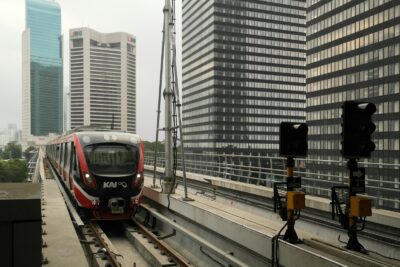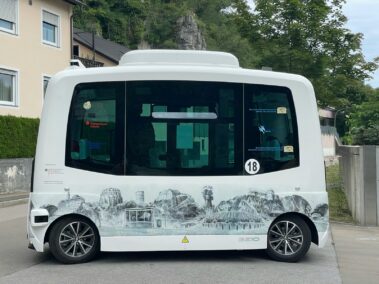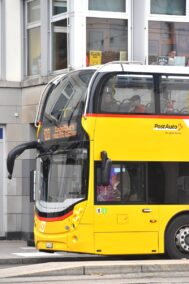Efficient Urban Mobility: Pioneering Wireless Charging Electric Buses
Explore how urban electric buses equipped with wireless charging technology are revolutionizing city transportation, promoting sustainability, and enhancing the quality of life for residents in cities like Riyadh and Dubai.
Revolutionizing City Transportation with Sustainable Solutions
Introduction:
As the world moves towards a more sustainable future, the transportation sector stands at the forefront of innovation. Urban centers, particularly in burgeoning economies like Saudi Arabia and the UAE, are embracing cutting-edge technologies to address congestion and reduce carbon emissions. One such innovation is the integration of urban electric buses equipped with wireless charging technology, offering commuters a convenient and eco-friendly mode of transportation within city limits.
Revolutionizing City Travel
Traditional fossil-fuel-powered buses have long been a staple of urban transportation systems, but they come with significant drawbacks, including pollution and reliance on finite energy sources. In contrast, electric buses powered by clean energy sources such as solar or wind are emerging as a viable alternative, with wireless charging technology further enhancing their appeal.
The Evolution of Urban Mobility
With the rise of smart cities and the increasing emphasis on sustainability, the demand for efficient public transportation solutions has never been higher. Cities like Riyadh and Dubai are leading the way by investing in infrastructure that supports electric vehicles, including charging stations and dedicated bus lanes. These initiatives not only reduce greenhouse gas emissions but also alleviate traffic congestion and improve air quality, ultimately enhancing the quality of life for residents.
The Future of Transportation
Wireless charging technology holds immense potential to revolutionize urban mobility by eliminating the need for cumbersome charging cables and infrastructure. By leveraging inductive charging technology embedded in the road surface, electric buses can recharge their batteries seamlessly while in operation, minimizing downtime and maximizing efficiency.
Creating Sustainable Urban Ecosystems
As businesses and governments alike prioritize sustainability goals, the adoption of electric buses powered by renewable energy sources aligns with broader environmental objectives. By transitioning towards cleaner modes of transportation, cities can reduce their carbon footprint and mitigate the impacts of climate change, laying the foundation for a more sustainable and resilient future.
Closing Thoughts
In conclusion, the integration of urban electric buses equipped with wireless charging technology represents a significant step towards creating greener and more efficient transportation systems in city centers. By harnessing the power of clean energy and innovative technologies, cities can improve air quality, reduce traffic congestion, and enhance the overall well-being of their residents. As we continue to embrace sustainable solutions, the future of urban mobility looks brighter than ever before.
Embracing Technological Advancements
In the quest for more efficient and sustainable transportation solutions, cities across the globe are increasingly turning to technological advancements such as Artificial Intelligence (AI) and Blockchain. These cutting-edge technologies hold the potential to optimize route planning, reduce energy consumption, and enhance the overall efficiency of urban transportation systems. By leveraging AI algorithms, cities can analyze data in real-time to predict demand patterns and optimize bus schedules, ensuring that resources are utilized effectively.
Unlocking the Potential of the Metaverse
As the concept of the Metaverse gains traction, there is an opportunity to integrate virtual reality (VR) and augmented reality (AR) technologies into public transportation experiences. Imagine commuters being able to immerse themselves in interactive virtual environments while traveling on electric buses, turning their daily commute into a productive and engaging experience. By embracing the Metaverse, cities can not only revolutionize the way people move within urban areas but also foster innovation and creativity in public transportation design.
Fostering Leadership and Management Excellence
Effective leadership and management skills are essential for driving organizational success and navigating change in today’s dynamic business landscape. Executive coaching services offer business executives and mid-level managers the opportunity to enhance their leadership abilities, improve decision-making, and foster a culture of innovation within their organizations. By investing in professional development initiatives, businesses can empower their leaders to inspire and motivate their teams, driving productivity and achieving sustainable growth.
Strategies for Successful Project Management
Project management plays a crucial role in ensuring the successful implementation of initiatives, including the deployment of urban electric buses and the integration of wireless charging infrastructure. By adopting proven project management methodologies such as Agile or Lean Six Sigma, cities can streamline processes, minimize risks, and deliver projects on time and within budget. Effective communication and stakeholder engagement are also key components of successful project management, facilitating collaboration and alignment across multiple stakeholders.
#UrbanTransportation #ElectricBuses #Sustainability #SmartCities #RenewableEnergy #InfrastructureDevelopment























